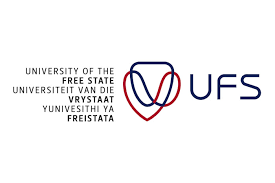University of the Free State: A journey of Pride – UFS commemorates Pride Month
South Africa is notably one of the most progressive countries on the African continent when it comes to advancing sexual rights. However, despite the constitutional provisions in place, gender identity remains a source of discrimination for many.
The Free State Centre for Human Rights at the University of the Free State (UFS), in collaboration with the UFS Gender Equality and Anti-Discrimination Office and intersectional feminist student body The Collective, held a Pride Month Lecture on 17 October 2022 at the Albert Wessels Auditorium on the UFS Bloemfontein Campus to commemorate the very first Pride parade in Africa, which occurred on 13 October 1990. The Collective is a student organisation founded in 2019, the purpose of which is to foster a community for marginalised students.
The lecture was facilitated by Bokang Fako, Founder and Chairperson of The Collective and Student Assistant at the Free State Centre for Human Rights, and included guest speaker Advocate Letlhogonolo Mokgoroane (they/them) of the Centre for Applied Legal Studies (CALS) at the University of the Witwatersrand and panellists Tshifhiwa Ramabulana (he/him) and Siyanda Magayana (she/her). Ramabulana is a queer writer pursuing an LLB degree at the UFS, and Magayana is a Senior Officer at the Gender Equality and Anti-Discrimination Office on the UFS Qwaqwa Campus.
Where it all began
The first Pride parade in South Africa took place on 13 October 1990 and was led by Simon Nkoli, an anti-apartheid activist who was also one of the country’s most prominent LGBTQIA+ activists. The march was organised by the Gay and Lesbian Organisation of the Witwatersrand (GLOW), an organisation that raised awareness and established a community of support for black queer people during the apartheid era. October has since been recognised as South African Pride Month and has been celebrated every year.
“Pride is not a party, it is essentially us protesting that the world doesn’t want us to exist in our fullness,” Advocate Mokgoroane said. They reiterated this by highlighting the need for the development of a sense of co-conspiratorship. Mokgoroane referred to Mathoko’s House, a place of refuge and a haven for many. “Mathoko, based in KwaThema, Ekurhuleni, offered counselling and emotional support to those who took shelter at the house, this is the co-conspiratorship needed in this climate. In the digital and social media era we find ourselves in, where are the likes of Mathoko? Are we only relying on hashtags?”
Gender diversity in institutions of higher learning
“For many gender-diverse people, the concept of binary gender – having to choose to express yourself as male or female – is constraining,” Magayana said. She further explained that for gender-diverse people, their identity is about presenting something more outwardly authentic to the world, whether they believe themselves to be differently gendered, or have no gender at all.
Magayana said some cultures do not recognise gender diversity beyond masculine and feminine. “In residences you find that certain students from different cultures would refuse to associate themselves with LGBTQIA+ students because, according to their culture, it is unacceptable.” She added that this is an issue that must be dealt with, because it is unacceptable that residences are fixated on a binary culture. “The programs at residences are not accommodative – what if I do not identify as male or female? Where do I go?”
A safer time
Ramabulana explained that there have been many incidents of tangible and intangible discrimination, including hate crimes where gay, lesbian, or transgender people are at huge risk of violence and death. However, he added, LGBTQIA+ people are a lot safer today than in the past. “Although there are myopic, monolithic views of who we are, we are indeed living in a safer time. So, with that said, I will not go deep into my experiences of violence, but I want to encapsulate what the activism and efforts were aimed at, and that is queer joy.” He explained that queer joy is the queer community being able to be free and peacefully celebrate their existence and expanded on how safe he feels in public spaces, and how the law now caters for the different diversity of identities that have always been present among human beings.
Ramabulana said the UFS is seen as one of the most representative universities in South Africa. “The UFS has made great strides in inclusion, from unisex residences to encouraging conversations around pertinent issues surrounding gender equality,” he said.

